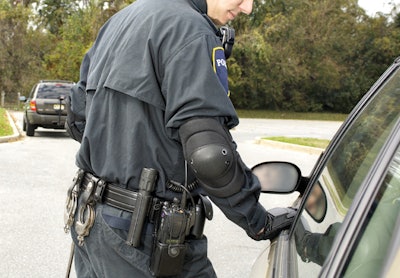 Photo: iStockPhoto.com
Photo: iStockPhoto.com
Some actions you take have been classified by Supreme Court decisions as requiring that you articulate a "reasonable suspicion" in order to make them constitutionally reasonable, while others can be undertaken only if there is "probable cause" ("PC"). But what do these terms mean? And how do you match the right level of justification with the kind of conduct you're seeking to justify?
Probable Cause
The Fourth Amendment provides that "no warrants shall issue, but upon probable cause." The Constitution doesn't furnish any definition of "probable cause," leaving that task to the Supreme Court, which has also applied the probable cause standard to certain warrantless activities.
The term "reasonable suspicion" is not of constitutional derivation but was fashioned by the court to describe a level of suspicion lower than probable cause. The court has struggled to provide meaningful definitions of both terms, and law enforcement officers have likewise struggled to understand and apply the court's vague, general pronouncements. In Ornelas v. U.S., the court acknowledged the problem:
"Articulating precisely what 'reasonable suspicion' and 'probable cause' mean is not possible. They are commonsense, non-technical conceptions that deal with the factual and practical considerations of everyday life on which reasonable and prudent men, not legal technicians, act. As such, the standards are not readily, or even usefully, reduced to a neat set of legal rules." (Ornelas v. U.S.)
Though it may not be possible to articulate precisely what "probable cause" means, the court has offered this guidance:
"Probable cause does not require the same type of specific evidence of each element of the offense as would be needed to support a conviction." (Adams v. Williams)
"Finely-tuned standards, such as proof beyond a reasonable doubt or by a preponderance of the evidence, useful in formal trials, have no place in the probable cause decision." (Maryland v. Pringle)
"The rule of probable cause is a practical, non-technical conception affording the best compromise that has been found for accommodating often opposing interests." (Beck v. Ohio)
"The process does not deal with hard certainties, but with probabilities. Long before the law of probabilities was articulated as such, practical people formulated certain commonsense conclusions about human behavior; jurors as fact-finders are permitted to do the same-and so are law enforcement officers." (U.S. v. Cortez)
"We have held that probable cause means a 'fair probability'." (U.S. v. Sokolow)
Give up? Sometimes, it's easier to define something by pointing to a category of examples that make the meaning clear. For instance, coming up with an abstract definition of "red" might be difficult, but the meaning could be made clear by saying, "It's the color of delicious apples, blood, ripe strawberries and tomatoes, ketchup, and stop signs."
Similarly, it may be easier to get a handle on the concept of "probable cause" by identifying familiar law enforcement activities associated with a requirement of PC. As the Fourth Amendment mandates, you need PC to get a search warrant.
The same goes for arrests. "Whether an arrest is valid depends upon whether, at the moment the arrest was made, the officers had probable cause to make it-whether at that moment the facts and circumstances within their knowledge and of which they had reasonably trustworthy information were sufficient to warrant a prudent man in believing that the person to be arrested had committed or was committing an offense." (Beck v. Ohio)
And PC is the level of information and suspicion that justifies the warrantless search of "fleeting targets," such as cars, trucks, buses, trains, airplanes, and boats. (U.S. v. Ross)
There is also a concept that is sometimes referred to as "probable cause plus." In Winston v. Lee, the Supreme Court said that when a search involves highly invasive probes into the body-such as surgery to recover a bullet-there must be probable cause to believe evidence will be found, plus a compelling need for the evidence that outweighs the suspect's right to be free of invasive procedures that could threaten his life or health.
Reasonable Suspicion
It was not until 1968 that the need for a standard lower than PC was recognized by the Supreme Court. In Terry v. Ohio, the court confronted defense challenges to both the detention of a robbery suspect and the weapons frisk that disclosed the gun he sought to suppress. The court noted that a temporary investigative detention is less of an infringement of a person's liberty than arresting him and taking him into custody. Therefore, said the court, police need not have as much justification for this lower level of restraint as the probable cause that would have been required to make an arrest. The court called this lower justification standard for detentions "reasonable suspicion."
This discussion shows why it is a mistake to use the expression "PC for the stop," which mismatches a higher level of justification with a lower level of infringement of individual liberty. "In Terry v. Ohio, we held that the police can stop and briefly detain a person for investigative purposes if the officer has a reasonable suspicion supported by articulable facts that criminal activity is afoot, even if the officer lacks probable cause." (U.S. v. Sokolow)
As for the weapons pat-down search of Terry, the court recognized that an officer-safety search limited to a frisk of a suspect's outer clothing is less of an intrusion on the suspect's privacy than a full-scale search of everything he was wearing and carrying; this partial search could be justified, said the court, based on a reasonable suspicion that the person might be armed and dangerous, which would be less than the PC necessary for a thorough search.
As with the concept of "probable cause," the lower standard of "reasonable suspicion" was not easily defined. "The concept of reasonable suspicion, like probable cause, is not readily or even usefully reduced to a neat set of legal rules," but "the level of suspicion required for a Terry stop is obviously less demanding than that for probable cause." (U.S. v. Sokolow)
The court has said that both the quantity and the quality of information constituting reasonable suspicion may be below the level needed for PC. "Reasonable suspicion is a less demanding standard than probable cause not only in the sense that reasonable suspicion can be established with information that is different in quantity or content than that required to establish probable cause, but also in the sense that reasonable suspicion can arise from information that is less reliable than that required to show probable cause." (Alabama v. White)
Again, defining reasonable suspicion in terms of familiar activities, it is the level of information and suspicion you need when you make a vehicle stop or a pedestrian stop, or pat down someone who might be armed, or search a vehicle based on reasons to believe it may harbor concealed weapons. (Michigan v. Long)
In a Nutshell
"Probable cause" means reasonably reliable information to suspect there is a "fair probability" that a person has committed a crime, or that a search will reveal contraband or evidence. "Reasonable suspicion" is a strong suspicion, even if based on less information of a less-reliable nature, that a person is involved in criminal activity or may be armed and dangerous.
Devallis Rutledge is a former police officer and veteran prosecutor who currently serves as Special Counsel to the Los Angeles County District Attorney. He is the author of 12 books, including "Investigative Constitutional Law."


















